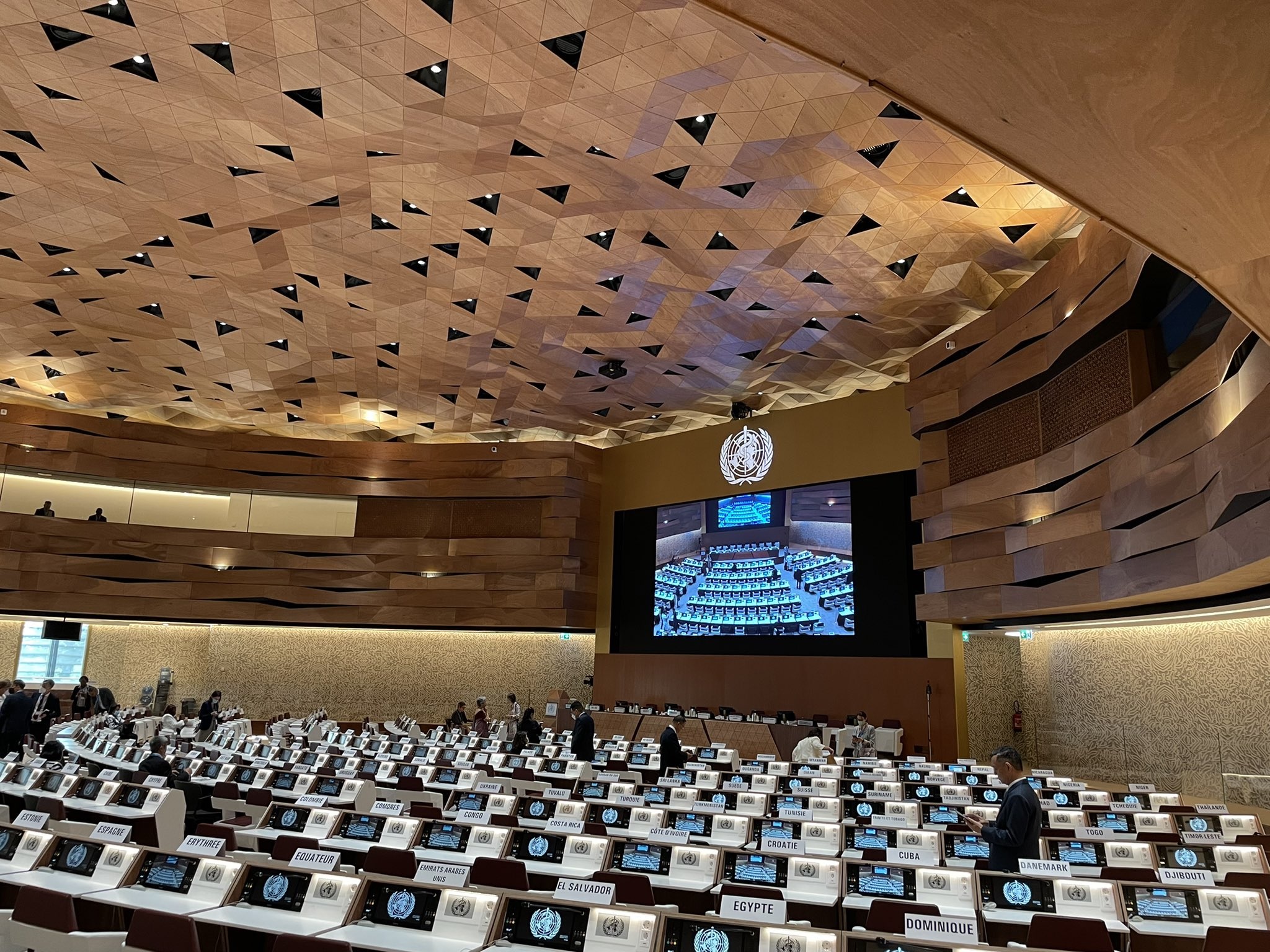WFSA joined forces with fellow Non-State Actors (NSAs) to present two statements to the 152nd WHO Executive Board Meeting.
WFSA joined fellow NSAs including Global Health Foundation, Save the Children, and the Task Force for Global Health to issue constituency statements on agenda items relating to preparedness and response to health emergencies and Universal Health Coverage. In accordance with WHO regulations, these statements will be included in the official report of the Executive Board meeting.
Agenda Item 5: Universal Health Coverage
Reorienting health systems to primary health care as a resilient foundation for universal health coverage and preparations for a high-level meeting of the United Nations General Assembly on universal health coverage (EB152/5)
COVID-19, conflict and the climate crisis have reversed progress toward global health and development targets, restricted human rights, in particular for women and children, and further widened inequities.
After the first decline in life expectancy since World War II and the longest sustained decline in immunization in 30 years, Member States must ensure that all people can access quality health services without financial hardship. Global solidarity and cooperation are required now to live up to the principles of the Alma Ata Declaration, reach SDG 3 targets and leave no one behind.
We call on Member States to:
- Prioritize primary healthcare as the key to resilient health systems benefiting both universal health coverage and health security goals;
- Provide a comprehensive health and nutrition benefits package to all, that includes sexual and reproductive health services.
- Prioritize essential service provisions such as water, sanitation and hygiene, particularly for vulnerable populations with least access;
- Prioritize health in government spending and implement comprehensive, multisectoral, gender-sensitive and equitable health financing policies that both expand quality health coverage and improve access and affordability for all;
- Strengthen health workforces through national policies that ensure safe working environments, fair remuneration and opportunities, respect for labour rights and competency-based training; Increase support to resource-constrained countries.
- Meet aid commitments and ensure that external spending aligns with domestic priorities while ensuring adequate relief from international debts;
- Champion participatory and inclusive health governance, that also addresses gender inequalities in leadership. This must include providing safe and legally mandated spaces for diverse civil society and communities to engage in decision-making, implementation, and monitoring of service provision.
- Lastly, we ask MS to participate in the UHC HLM at the highest level to demonstrate political commitment, and to support the participation of civil society in preparations.
EB Agenda Item 12 – Public health emergencies: preparedness and response
Global Health Council and its constituency support this bold plan and its guiding principles of coherence, equity, and inclusivity. We applaud the WHO Secretariat for its commitment to bring together the “universe” of health security strengthening proposals through this report. We call on the Secretariat to help connect these proposals and ongoing processes.
We support that the HEPR must be built on robust and resilient health systems and note that the 10 proposals are based on the need to effectively respond to future pandemics. Strengthening and investing in essential public health functions and primary and critical care services is essential.
We are especially eager to champion the proposals to:
- Elevate pandemic preparedness and response notably through exploring the potential of an emergency council;
- Ensure the durability and complementarity of the IHR to the pandemic accord through targeted amendments
- Strengthen the health workforce, the majority of whom are women, by ensuring regular compensation and safe and dignified working conditions with access to countermeasures, appropriate PPE, vaccines, water, sanitation and hygiene;
- Strengthen partnerships, networks & health data governance towards the aim of fostering a “whole-of-society approach to safely and equitably prevent, prepare, and respond to health emergencies;
- Enhance coordination between finance and health policymakers, and sustainably finance the Pandemic Fund to effectively address preparedness gaps at the country-level;
- Put WHO at the center of the global HEPR architecture, recognising WHO’s integral, inclusive, transparent, role in responding to health emergencies.
- Lastly, member states must continue to drive ambition towards these processes with critical guidance from the Secretariat, to ensure these proposals move forward swiftly and with consensus.
Since an effective HEPR requires multi-sectoral action and listening and co-crafting solutions with affected communities, Member states & the WHO must commit to ensuring the meaningful engagement of non-state actors & civil society.






